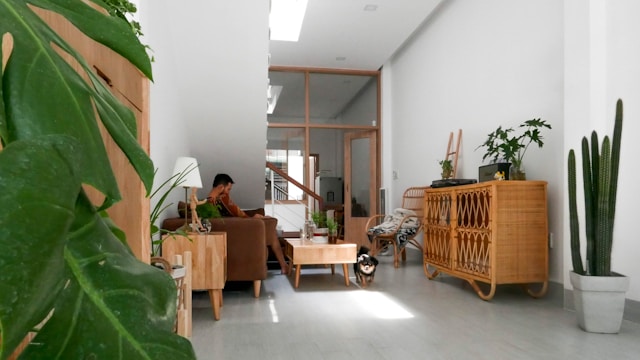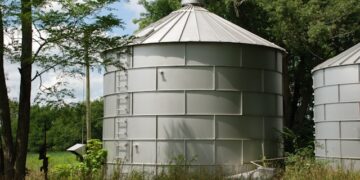As the world becomes more environmentally conscious, many homeowners are looking for ways to make their homes greener and more energy-efficient. Eco-friendly home improvement ideas are not just good for the planet they can also lead to significant savings on energy bills and create a healthier living environment. Whether you’re planning a major renovation or just want to make small changes, there are countless ways to upgrade your home sustainably.
Below, we’ll explore the best sustainable home upgrades and green renovation tips that are both practical and impactful.
Upgrade to Energy-Efficient Appliances
One of the easiest and most effective ways to create a more sustainable home is by replacing old, energy-hungry appliances with energy-efficient models. Look for products that carry the ENERGY STAR certification, which ensures they meet strict energy efficiency guidelines set by the U.S. Environmental Protection Agency.
From refrigerators and dishwashers to washers and dryers, these upgrades can drastically reduce your household energy consumption. Over time, the investment in energy-efficient appliances pays off through lower utility bills, making this one of the smartest eco-friendly home improvement ideas.
Install Solar Panels
Harnessing the power of the sun is one of the most transformative sustainable home upgrades you can make. Installing solar panels can significantly reduce your reliance on fossil fuels and lower your monthly energy costs.
While the upfront cost can be high, many regions offer tax credits, rebates, and financing options that make solar panels more accessible. Over the long term, homeowners often recoup their investment through energy savings and even have the potential to earn money by selling excess power back to the grid. Solar energy not only benefits your wallet but also reduces your home’s carbon footprint dramatically.
Improve Home Insulation
Improving your home’s insulation is a classic yet essential green renovation tip. Proper insulation minimizes the amount of heating and cooling your home requires, directly cutting down on energy usage. Eco-friendly insulation options like recycled denim, cellulose, or natural wool are sustainable choices that perform just as well, if not better, than traditional fiberglass.
Sealing gaps around windows, doors, and attics can further boost your home’s energy efficiency. By investing in better insulation, you’ll enjoy a more comfortable indoor climate year-round while reducing your environmental impact.
Use Sustainable Building Materials
When planning renovations or remodeling projects, consider using sustainable building materials. Bamboo flooring, for instance, is not only beautiful but also grows much faster than traditional hardwood, making it a highly renewable resource. Reclaimed wood adds character and charm while preventing the need for new deforestation.
Other eco-friendly options include recycled metal, low-VOC (volatile organic compound) paints, and countertops made from recycled glass or paper composites. Choosing these materials is a powerful way to incorporate eco-friendly home improvement ideas into your living space.
Water Conservation Upgrades
Conserving water is just as important as saving energy. Simple upgrades like installing low-flow faucets, showerheads, and dual-flush toilets can drastically reduce your water consumption without sacrificing performance.
If you want to take water conservation to the next level, consider installing a rainwater harvesting system. Collecting and reusing rainwater for irrigation or even household use (where allowed) helps conserve municipal water resources and can lower your water bills.
Create a Native Plant Garden
Landscaping is another major area where you can make sustainable choices. Planting a native plant garden not only enhances the beauty of your property but also conserves water and supports local biodiversity. Native plants are adapted to your region’s climate and soil conditions, which means they require less watering, fertilizer, and pesticides.
Organic gardening practices, such as composting and using natural fertilizers, also contribute to a healthier ecosystem around your home. This is a simple but highly effective green renovation tip for making your outdoor space more eco-friendly.
Embrace Smart Home Technology
Smart home technology offers another way to implement energy-efficient home projects with ease. Smart thermostats learn your habits and adjust the temperature accordingly, ensuring that energy isn’t wasted when no one is home. Similarly, smart lighting systems can reduce electricity usage by allowing you to automate when and how your lights operate.
Smart irrigation systems can help you water your garden more efficiently by adjusting to weather conditions and soil moisture levels. Incorporating smart home tech not only improves your home’s convenience but also helps you cut down on unnecessary energy and water use.
Bonus Ideas
If you’re looking for even more inspiration, consider setting up a composting station for food scraps to reduce landfill waste, or installing a green roof to improve insulation and manage rainwater runoff. Upgrading to energy-efficient windows with multiple panes and low-E coatings can also dramatically enhance your home’s sustainability by reducing heating and cooling demands.
Each of these sustainable home upgrades contributes to a more eco-friendly lifestyle and a healthier home environment.
Conclusion
Making your home greener doesn’t require a complete overhaul. Starting with a few thoughtful changes whether it’s upgrading to energy-efficient appliances, improving insulation, or landscaping with native plants can lead to significant environmental benefits and long-term savings. By incorporating these eco-friendly home improvement ideas into your living space, you’re not only creating a more sustainable home but also setting an example for future generations. Every small step toward a greener lifestyle makes a difference!









